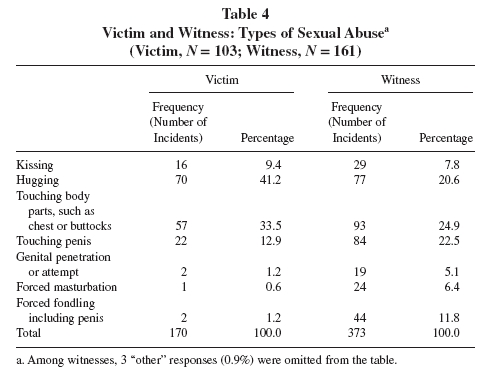Serendip is an independent site partnering with faculty at multiple colleges and universities around the world. Happy exploring!
Korean Masculinity: in History and Reality and Where it Fits in Feminism

While compiling together the rest of our semester for a Critical Feminism as a class, we agreed that looking into the intricacies of masculinity would be a good topic to look into further. We spent two days focusing our attention on a graphic novel “Jimmy Corrigan: The Smartest Kid on Earth” which narrates a seemingly pathetic middle-aged man and his struggles to live up to the fantasy/myth of the Superman image of his childhood; the Superman image was a common figure of masculinity in America during the comic’s peak. I think the reason we wanted to discuss masculinity in a Feminism course was to, first, change the conventional idea that Feminism is about hating men, and, second, understand that oppression and objectification is a two way street. My last two web papers have dealt with the woman’s role historically in Korean history and Korean women’s representation in Korean popular music. This web paper will take a turn and look at masculinity in Korea, where is originated in Korean history, how the masculinity ideals reflect in a the contemporary light of South Korean military and sexual harassment incidents within the army, and where masculinity in general fits into the conversation of Feminism.
Korean masculinity has been shaped by many different course of history including the shifts in religion and fifth century warriors that perpetuate ideals from civil and obedient to prowess in physical fighting abilities. The key points of Korean masculinity historically are “disciplined, self-controlled, sublimating the sexual impulses and channeling them toward the nobler national good and highly militarized” (Tikhonov, 1029). During the Three Kingdoms Period, Korea held characteristics that would be seen in a Chinese war hero-- "minimizing his sexual ties, always prepared to sacrifice himself and all of his family members to yi (ritual, propriety, etiquette), duty, fully concentrated on his battlefield endeavors" (Tikhonov, 1038)-- because of Korea's still close ties with China. Along with the more social ideals of a Chinese Guan Yu warrior, other warriors of the three kingdoms (Silla, Koguryo, and Paekche) were praised for their loyalty to their state and fearless fighting. Due to the flux in religion (Shamanism to Buddhism to Confucianism to Christianity) that I discussed in my first paper, the ideals of a man in the eyes of God were structured in many different ways. Focusing on neo-Confucianism's description of an ideal male-- since Confucianism is in many ways still the standing strong as the foundation of Korean Society today-- God would see that an ideal man should be "virtuous, patriotic gentleman" or self-sacrificing for what is right (Tikhonov, 1032). Stories like Peter the Great and Bismarck also promoted the fact that the ideal male must also represent physical and mental strength in order to prove his "patriotism", focusing not on the violent aspect of conquest, but on "disciplinarian control" (Tikhonov, 1033). Besides the obvious differences between what was considered masculine socially and what was considered masculine physically that were being separated by influences from religion and heroic images of war, it was also a huge matter of class. Those who were in lower classes (commoners), typically had to prove their masculinity in more physical ways and those who were in high classes emphasized self control and adherence to moral and ritual norms (Tikhonov, 1029). Overall though, both physical and social characteristics were prompted as ideals and both ways of masculinity helped shape what is considered masculine currently.
In the most basic way, a lot of what masculinity was in the Korean History focused on the need for keeping up with nationalist ideals such as loyalty to one’s country, fighting those who question your patriotic spirit, and sacrificing yourself for the sake of duty, and so what better way to look at what modern Korean masculinity looks like than to investigate the South Korean Military. Some policy in South Korea: South Korean men are obligated to join the military at least once in their life for 2.5 to 3 years starting anywhere between the ages 18 and 37. Usually you can defer enlistment as long as you are in school, up to age 24 or have some severe injury, such as a torn ACL, missing index finger, serious mental illness etc., that doesn’t allow you to participate in the military at all. Most of the times though, if a man is physically unfit for actual “fighting” in the war, they are sent to do military office jobs or service jobs that can be seen similar to community service which will count towards their military requirement. Whether you fall into the category of physically unfit for war or not, you must still complete up to 5 weeks of military training. A problem that has recently come to the public eye is the sexual violence and harassment prevalent in many military troops. Insook Kwon published the first widespread survey of its kind called “Sexual Violence Among Men in the Military in South Korea” which surveyed 671 men who have been in the South Korean military. Kwon reported, “Of 671 valid respondents who participated in this survey of victimization, perpetration, and observation, a total of 103 people (15.4%) answered that they were directly victimized, 48 people (7.2%) answered that they had direct experience as perpetrators, and 166 people (24.7%) answered that they witnessed sexual violence in the military.”


As well as, “Victims named higher ranking soldiers (71.1%), junior officers (7%), and officers (3.1%) as their perpetrators, totaling 81.2% of victims who responded that someone of a higher rank forcibly imposed sexual contact… [Victims, perpetrators, and the Korean Sexual Violence Relief Center] confirmed that victims of sexual abuse were in lower ranks than their perpetrators. All victims had been victimized by higher ranking soldiers, and eyewitnesses reported likewise. In sum, sexual violence among men in the military in South Korea was committed primarily by a higher ranking solider against a lower ranking soldier.” (Kwon, 1029). When these men are employed to join the military, they are forced into a position that resembles the commoner class lifestyle where the emphasis of their masculinity is in their physical strength in battle and conquest over being more controlled and disciplined. By exerting their own power and prowess in dominating other through forcing their sexual advances on unwilling patrons, the perpetrators are reaffirming the lack of power than another man has. Power and hierarchy are reinforces by the fact that this type of sexual violence is created by higher ranking officers unto lower ranking officers, keeping the lower ranking officers in the lower position of being the one dominated over. In class, we were prompted to read Michael S. Kimmel’s excerpt “Masculinity as Homophobia” in which Kimmel’s main point was that men are afraid of other men because another man has the potential to humiliate, dominate, and reveal themselves as fake or fraud men. This is definitely the case for South Korean men in the military who must constantly perform their masculinity in whatever way they can and by using sexual violence they are the ones who are humiliating and exposing other men as fake men, keeping themselves in a higher position.
There are many different goals in Feminism, but I think, in at least third wave Feminism, one of our most important goals is to blur what is conventionally thought of as female/male to give people more agency in the way they go about their live, not having to perform according to the biological sex they were assigned to. A lot of feminism focuses on how women are objectified because they are women, or the fact that women aren’t allowed to do certain things because they are women. But in order to understand the injustices of one side of the binary, it’s important to both acknowledge as well as understand what going on on the other side if we want to make any progress with getting rid of the social controls that dominate gender and gender performance. Feminism is for equality and in order to have equality we must look at the injustices on both sides, female and male.
Works Cited:
- "Ask a Korean!" : Military Service Series: Part I. Web. 20 Apr. 2012. <http://askakorean.blogspot.com/2009/03/military-service-series-part-i.html>.
- Harlan, Chico. "With S. Korea’s Mandatory Military Service, a Cycle of Adjustments." Washington Post. The Washington Post, 07 July 2011. Web. 20 Apr. 2012. <http://www.washingtonpost.com/world/with-s-koreas-mandatory-military-service-a-cycle-of-adjustments/2011/06/30/gIQAfjvE1H_story.html>.\
- Kimmel, Michael S. "Masculinity as Homophobia." Reconstructing Gender: A Multicultural Anthology. By Estelle Disch. Boston: McGraw-Hill, 2003. Print.
- Kwon, Insook. "Sexual Violence Among Men in the Military in South Korea." Journal of Interpersonal Violence 1024-1042 22.8 (2007). Print.
- Tikhonov, Vladimir. "Masculinizing the Nation: Gender Ideologies in Traditional Korea and in 1890s-1900s Korean Enlightenment Discourse." The Journal of Asian Studies 66.4 (2007): 1029-065. Print.
- Turnbull, James. "Sex as Power in the South Korean Military." The Grand Narrative. 31 Mar. 2010. Web. 20 Apr. 2012. <http://thegrandnarrative.com/2010/03/31/sexual-violence-korean-military/>.



Comments
Korean Masculinities Article
Use for presentation
Two Way Streets?
FrigginSushi--
I'm very glad to hear your recognition that, if feminism is about equality, then we need to consider the full spectrum of injustice around questions of gender identity, very glad to learn about the research you've done to understand varieties of masculinity, and particularly glad to hear about the experiences of being masculinized in Korea, of which I know so little. There's much of interest here…
As with your earlier papers, I also find myself wanting to hear next steps, further layering of questions and interpretation than what you've been able to offer so far. You say (for instance) that "oppression and objectification is a two way street." What does that cliche mean, specifically and contextually, for men in the Korean military? Do you think/imagine (do other critics hypothesize?) that there is a relationship between the masculinist ideals and the sexual humiliation of men by other men? (What is the "street"? What are the "two ways"?) You say (for another instance) that "Peter the Great and Bismarck" were used to promote the ideal of a man using physical and mental strength to prove his patriotism. Do you think/imagine (do other critics hypothesize?) that there is a relationship between the Western masculinist ideals and those of Korea? (What is the "street" on which Korea picks up European ethos? Does that also go "two ways"?)
You say (for a third instance) that "victims of sexual abuse were in lower ranks than their perpetrators." Do you think/imagine (do other critics hypothesize?) that there is an explicitly parallel relationship between gender and class, with lower class men assuming the "feminine" role in cases of abuse? (What is the "street" on which class and gender intersect? How might it go "two ways"? )You say (for a final instance) that one of the goals of third wave Feminism is "to give people more agency in the way they go about their lives, not having to perform according to the biological sex they were assigned to." What do you think/imagine (how do other critics hypothesize?) is the relationship between biology and culture, between being "male" and performing "masculinity"? (What is the "street" on which genetics and behavior intersect? How might it go "two ways"?)
Much for us to discuss further!….and for you to write about (and image? how about some images in your final webevent….?) further?